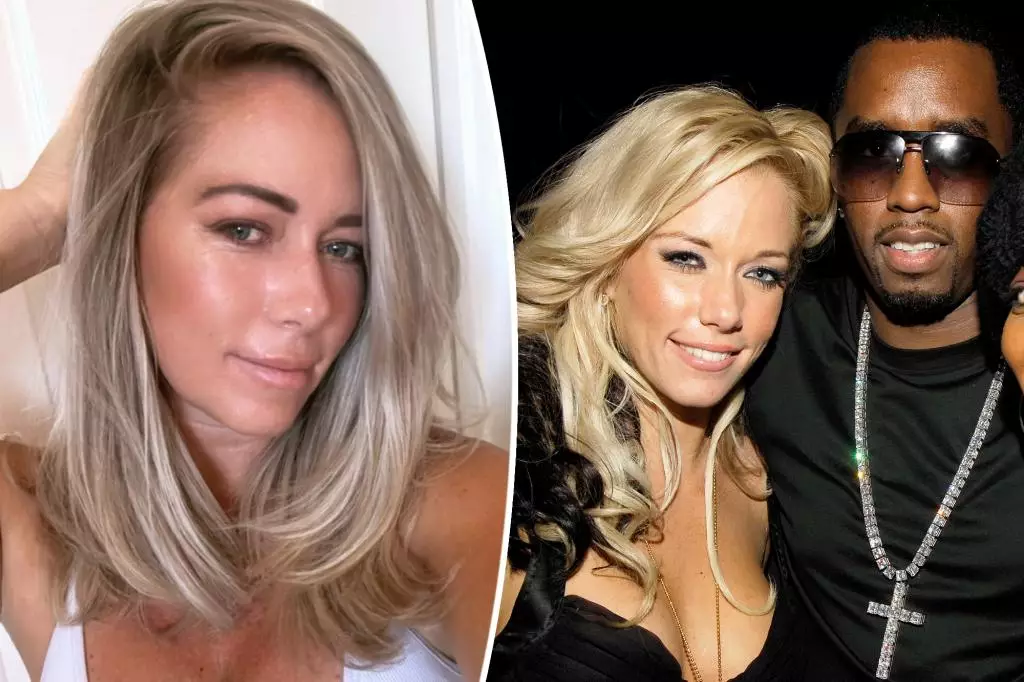Kendra Wilkinson’s recent commentary on Sean “Diddy” Combs’ notorious parties sheds light on a culture that often romanticizes the wild and often reckless behavior associated with celebrity gatherings. On a recent episode of “The Kylie & Jackie O Show,” the former Playboy model and reality TV star shared her memories of attending a couple of Diddy’s infamous bashes. Even amidst serious allegations against the hip-hop mogul—including sex trafficking—Wilkinson reflected fondly on her experiences, indicating that for her, these gatherings were primarily about fun. At 39 years old, Wilkinson admitted she had “a great time” during her youth, without claiming to witness any wrongdoing personally.
While her comments may resonate with many who party in Hollywood, they raise critical questions about the normalization of questionable behavior in high-society environments. Wilkinson’s viewpoint suggests a disconnection from the potential darker narratives that lie beneath such soirées, particularly in light of the current legal troubles facing Diddy.
Blind Spots in Party Culture
Wilkinson’s assertion that “sex is sex” and her nonchalant attitude towards what happens behind closed doors expose a cultural blind spot in the glamorous narrative of celebrity life. While many may view parties as an extension of one’s youth filled with freedom and exploration, it also raises ethical questions about accountability and the environments that allow for exploitative behaviors to thrive. It’s disconcerting, yet not surprising, that such activities could be overlooked or minimized by those who may not be directly affected by the illicit undertones lurking in these extravagant settings.
She clarified, “I’m saying that nothing bad ever happened to me,” a statement that underscores a common phenomenon in social settings where a privileged few tend to overlook systemic injustices and harassment prevalent in less-visible contexts. This divide can make one susceptible to rationalizing or rationally overlooking alarming behaviors prevalent around them.
The shocking allegations against Diddy paint a stark contrast to Wilkinson’s carefree recollections. After a number of investigations and a formal arrest on serious charges—including racketeering and sex trafficking—Diddy’s world of celebrity parties is facing intense scrutiny. Prosecutors allege that Diddy coerced and abused women for years. Such claims, which claim to illustrate a pattern of behavior, challenge the idyllic image often painted by celebrities who participate in similar gatherings.
Considering Diddy’s influence in the industry and the various A-list names associated with his parties—including actors and musicians—this scandal opens the debate on the culture of complicity in celebrity circles. As Wilkinson fondly reminisced about her time surrounded by nude revelry at the Playboy Mansion, the contradiction lies in the differing experiences individuals face while navigating the same circles of fame and notoriety.
The fallout from Casandra “Cassie” Ventura’s lawsuit further complicates the narrative. The very public accusations of abuse she leveled against Diddy ignited a wave of similar testimonies from other individuals who have allegedly suffered at the hands of the music mogul. This ripple effect speaks to a broader issue: the power dynamics at play in the entertainment industry. There’s an alarming complexity surrounding the relationships between public personas and their private lives.
Wilkinson’s experiences and her comments reflect the wider discourse around how consent is perceived within the realm of entertainment and nightlife. When individuals like Diddy are accused of horrific acts, it prompts a necessary reexamination of the environments that allow such occurrences, particularly those frequented by the “in-crowd.”
In light of these troubling allegations, encompassing everything from sex trafficking to abuse, Wilkinson’s contextualization of her experiences at Diddy’s parties serves as a reminder of the chasm that often exists between perceived glamour and underlying risk. While she may not have experienced any negative incidents, her statements further underline the need for open conversations about consent, accountability, and the cultural structures underlying such high-profile social gatherings.
As the case unfolds and more testimonies come to light, it becomes increasingly critical for society to ask the tough questions about the normalization of excess in celebrity culture and the often invisible lines crossed in the name of fun.

